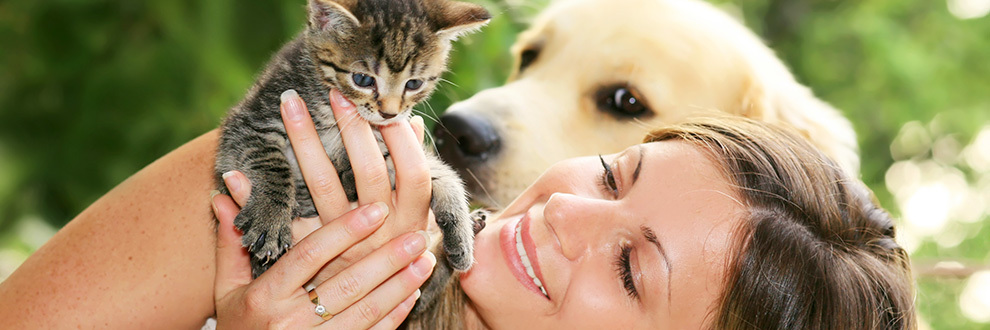Restelo Veterinary Practice - ResteloVet Wellness
Well-being
Only a healthy pet is a happy companion. Assuring your pet's daily well-being requires regular care and close attention to any hint of ill health.
We suggest that you consult your Veterinarian if your pet shows any of the following signs:
- Abnormal discharges from the nose, eyes or ears.
- Abnormal behavior, sudden viciousness, or lethargy.
- Abnormal lumps, limping, or difficulty getting up or lying down.
- Loss of appetite, marked weight losses or gains, or excessive water consumption.
- Difficult, abnormal, or uncontrolled waste elimination.
- Excessive head shaking, scratching, and licking or biting any part of the body.
- Dandruff, loss of hair, open sores, or a ragged or dull coat.
- Foul breath or excessive tarter deposits on teeth.
Pet Care
The arrival of a pet at home is always a reason for joy…but also for some worries! Thinking of you and your new partner, we suggest some health recommendations.
|
Dieta Diet A balanced diet is essential for healthy growth. Choosing a diet is not always easy, but you can ask your veterinarian for advice. There are a number of foods not to be given to your pets: coffee, onions, garlic, grapes, raisins and avocados are toxic. For dogs, dry food should be introduced from 6 weeks of age and can be given freely up to 2 months. From this age onwards, the recommended daily dose of food should be adjusted. Cats can have free food (food available throughout the day) or have two to three meals a day (limiting the time or amount of food available). . |
Vaccination Vaccinations Vaccination plans and established deadlines must be adhered to to ensure your companion's protection from serious infectious diseases! Vaccination plans and established deadlines must be adhered to to ensure your companion's protection from serious infectious diseases! The vaccination schedule will be designed taking into account your pet's age and lifestyle. As a rule, vaccination should be started between 6 and 8 weeks of age, and the necessary boosters should be given to ensure maximum effectiveness. Until the entire vaccination schedule is completed, walks should always be on the lap and avoid contact with unvaccinated animals. . |
|
Internal deworming Control of internal parasites (roundworms and tapeworms) should be carried out from 15 days of age. Some parasites can be transmitted during birth and cause problems in puppies. It is recommended to deworm the animals internally every 15 days, up to 3 months of age, monthly up to 6 months, and from this age with a frequency of 3 to 4 months. |
Desparasitação Externa External Deworming Protecting against fleas, lice, ticks and mosquitoes are important preventive measures against many other medical problems. There are several products in different formulations to protect your animal. From 7 weeks onwards, it is recommended to apply a monthly external deworming or the placement of long-lasting antiparasitic collars |
|
Oral hygiene It is important to adopt and maintain certain oral hygiene care for your pet. Small debris and food remains accumulate in your pet's mouth, helping bacteria to develop and the appearance of tartar and periodontal disease - characterized by inflammation of the gums, bad breath, bad appearance of teeth, and loss or fracture of teeth. Regular brushing of teeth with pastes suitable for pets and products that delay and reduce their development are effective ways of cleaning /span> |
Grooming Bathing and clipping are also an integral part of your pet's health and well-being. Bathing and clipping are also an integral part of your pet's health and well-being. You should regularly brush your pet's fur with a suitable brush. You should avoid bathing your animals until the vaccination protocol is complete. If you need to clean, you can use wet wipes or dry shampoos designed for young animals. |



